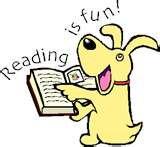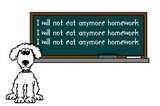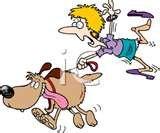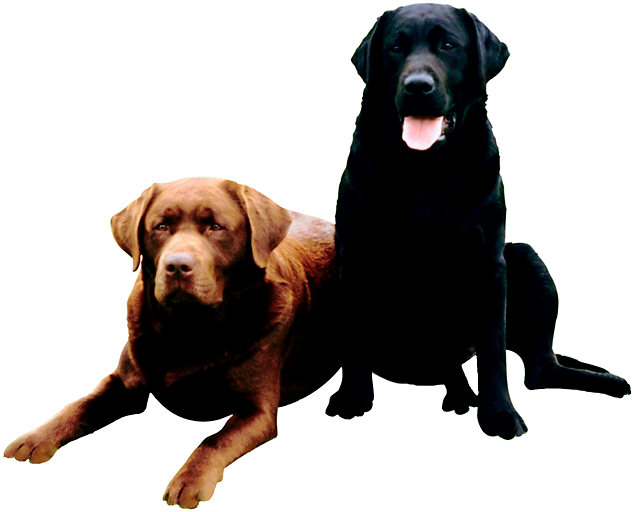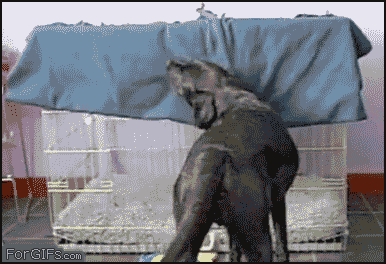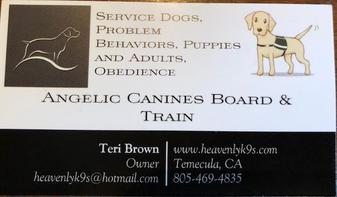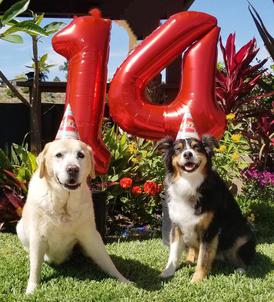 | ||||||
Click here to order any of Cesar's many videos and training books
 | ||||||
NIGHT NIGHT - "I JUST LOVE MY CRATE!"
Puppy Training Academy
Alan Gunther, APDT
Training Director
Professional Handler/Dog Trainer
GoldenBreeder/Boarding Facilitator
Puppy Training Academy and Margale Boarding Facility
760-295-2222 29976 Margale Ln.
PuppyTrainingAcademy.com Vista, Ca 92084
yoderlabradors@gmail.com
Another good book Your Labrador,
Month by Month"
by Albert Eldridge
CHECK OUT OUR PAGE:
THE HEALTH OF YOUR PUPPY
FOR POTTY TRAINING AND SUPPLIES
FOR THE FIRST FEW NIGHTS AND WEEKS
Wondering what your puppy should be doing at 8 weeks or 10 weeks, or a little later at 4 months or 5 months? In this article, we are going to look at how to train a Lab puppy at the various stages of their life.
From 8 weeks on our puppy training schedule guides you through ages and stages of Labrador puppy training.
It is very tempting to get carried away with puppy training.
These little Labradors are so willing to please and such fun to be around. But it is important to go at a ‘happy’ pace.
Obviously, we don’t want to be ‘correcting’ tiny puppies. And this can easily creep in if we ask too much too soon.
So, what should we be doing with a puppy at two or three month’s old?
What are the stages in training that a puppy should pass through? No two trainers will ever agree exactly on this one!
But it might help to see what I currently do with my puppies
An approximate schedule
This may not be exactly the same for each Labrador puppy, especially with retrieving.
However, it gives you a rough idea. I’ll also give you some general ideas of what to expect from a puppy at each stage.
What I teach at 8-10 weeks
Follow me: Encourage the puppy to walk after me and keep close to me outdoors, by walking a few steps one way, and a few steps another. Constantly changing direction. Stopping frequently for cuddles and rewards.
Recall: Lots of puppy recall ‘phase one’ training. This means I blow the recall whistle whenever the puppy runs towards me, no compulsion, and no whistle unless the recall is already underway.
Socialization: Lots (almost daily) of outings to different places rural and urban (carried) Visits to family and friends.
Bite inhibition: Discourage hard biting, allow mouthing
Working with food: Learning how to take food gently without snatching or grabbing at the treat pot.
What I teach at 10-12 weeks
Walk next to me: Introduce clicker heel to get the puppy walking alongside me in the heel position on my left-hand side.
Recall: Now I start introducing the whistle as a ‘signal’ to trigger the recall. I still give the puppy lots of encouragement by running away as soon as I blow the whistle.
Socialization: More socialization, at least twice a week to busy public places
Bite inhibition: Discourage hard biting, allow gentle mouthing
Retrieving: Encourage chase and pick up (retrieve drive)
Hand touch: I teach all new puppies to touch my hand with their noses. This is a great foundation for other skills. Check out my instructions and video. It’s fun!
What I teach puppies at 3 – 4 months
Walk on a lead: If she is ready for this, I start to slip a lead over the puppy’s head for very short periods as she walks next to me.
Recall: Puppy recall continues, reduce my run to a walk, avoid any distractions. Still frequently blow the recall whenever the pup runs towards me of her own free will.
Socialization: From ground level (after vaccination). Attend events/take into town. No other lead walking at all
Bite inhibition: No biting, gentle mouthing allowed.
Retrieving: Continue to build drive.
Getting into a bed/basket: I introduce the idea that sitting in her bed while we eat is a great way to get treats.
Positions: I introduce three positions – sit, stand, down.
What to expect from a 3-month-old puppy
Most three-month-old puppies will be sleeping through the night. And will be having less potty training accidents in the house.
There are a few potty training problems that arise at this age, and they are all covered in 15 potty training problems solved.
This is peak age for biting, so don’t expect too much. Biting is a big shock and a big problem for many new Lab puppy parents so do check out our complete guide to biting, and join the forum for help and support
Many people will have started to teach their puppy to ‘sit’ at this point and that is fine, my only caution would be not to start asking such young puppies to stay for more than a second or two.
I also like to get small puppies acquainted with the idea that getting in their bed while we eat is a great idea. I have a pot of dog treats on our kitchen table, and whenever we sit down to a meal, the puppy gets a treat each time she steps into her basket. No pressure, no ‘stay’. Just a treat for stepping in there.
What to expect from a 4-month-old puppy
Many four-month-old puppies will be pretty much potty trained. They will however still be prone to accidents if left for too long.
Biting is usually starting to subside now, and many four-month-old puppies will be able to mouth at your hand without hurting you. At this point I start to discourage all mouthing.
I teach every puppy to let me touch her face or approach her with my hand, food, a lead etc. while holding eye contact and not grabbing at me, or at what is in my hand
This is the age at which people often start to push forward with training. And many four-month-old puppies are capable of quite a lot.
There is nothing wrong with teaching your puppy different cues and even some tricks. You’ll find ideas and instructions in our puppy training guides.
I recommend you still avoid long duration activities at this point as they are a common stumbling point with puppies young enough to have a short attention span.
I wouldn’t expect a four-month-old puppy to walk at heel for long distances, or to stay in his basket for an entire meal for example. A ten second sit is ample.
What I teach puppies at 4 – 5 months
Heel: begin to practice heel work more purposefully. Add mild distractions
Recall: Fade additional cues. Begin to whistle the pup and stand still. Add mild distractions.
Socialization: One or two short outings into crowded/public places
Bite inhibition: No more mouthing. Clicker train to polish this in mouthier puppies.
Sit/stay: Simple short duration sits, in low distraction environment
Bed/basket: I expect a puppy to remain in her bed most of the time while we eat by about five months. No commands are needed for this. She chooses and I reward
5 – 6 months
General obedience: Gradually advance the ‘heel’ and ‘sit’. Gradual introduction of distractions
6 months onwards
Advanced training begins in earnest
This is where I start a program of gundog training with my Labs. You can begin raising your standards and expectations, asking for longer and more complex behaviors.
Teaching your puppy to walk to heel nicely for longer distance and past all kinds of distractions and temptations
Or teaching your puppy to sit and stay for longer periods of time, and even while you go out of sight or while other dogs play nearby.
The secret to success is breaking these skills down into baby steps and adding distractions bit by bit
This part of training is called proofing, and you’ll find plenty of help in our individual training guides and in our proofing articles.
What to expect from a six-month-old puppy
Six months is a common time for people to have a lot of questions and to be struggling with a few challenges.
This is now a very bouncy, quite powerful and rapidly maturing young dog. And you may need to patch up a few holes in his training or manners
Don’t panic. We have a great article for owners of six-month-old Lab puppies. Head over there and you’ll find you are not alone!
In your own time
Some people train a good deal faster than this and achieve quite impressive results with quite small puppies.
I come from an era where gundog puppies were left ‘untouched’ until 8 or 9 months of age.
They were given time to mature and just be puppies before training commenced.
This was partly because training methods were much harsher in those days.
These days I tend to do more with each puppy at a younger age, but there is also some virtue I think, in not expecting too much.
Early starters don’t get there faster
As far as I’m aware, there is no evidence to suggest that puppies that are ‘hot-housed’ from an early age, make more obedient, or better mannered dogs.
So don’t worry about rushing your Labrador into ‘school’ at eight weeks old.
You have plenty of time to enjoy your puppy and work slowly through a gentle but effective long term training program.
More information on puppies
You can find out more about your puppy’s development in the Puppies section of our website.
For a complete guide to raising a healthy and happy puppy don’t miss The Happy Puppy Handbook.
The Happy Puppy covers every aspect of life with a small puppy.
The book will help you prepare your home for the new arrival, and get your puppy off to a great start with potty training, socialization and early obedience.
The Happy Puppy Handbook is available worldwide.
 | ||||||

